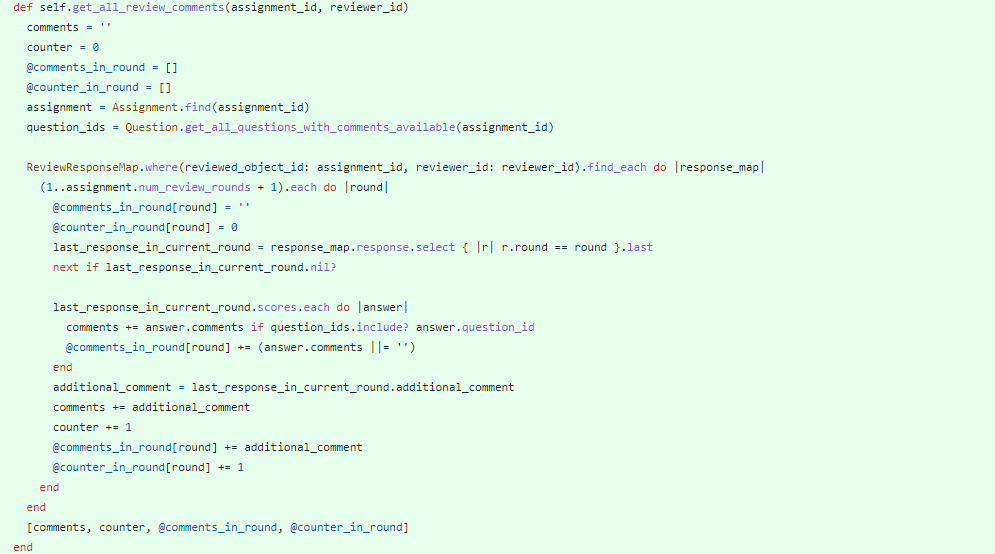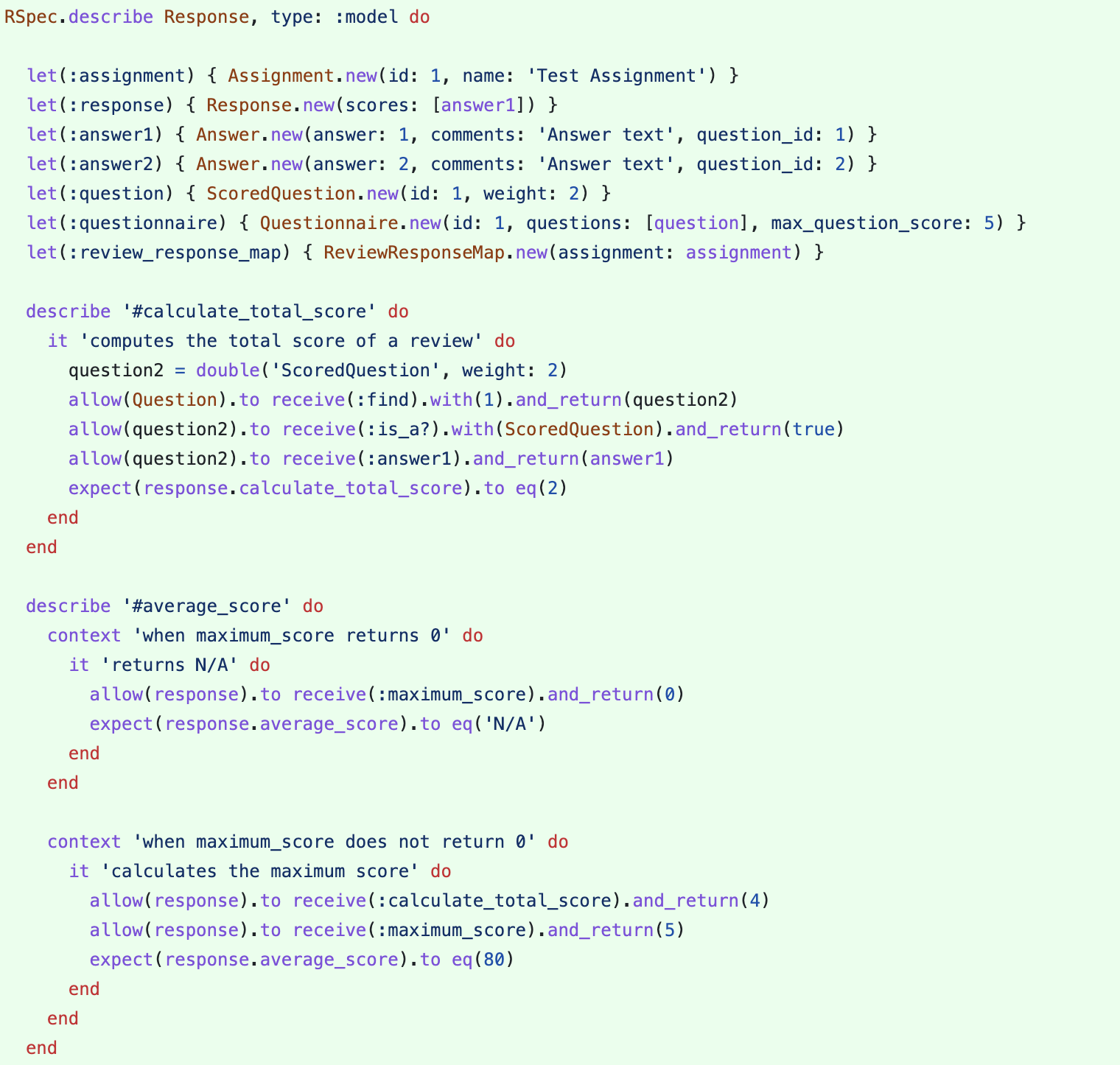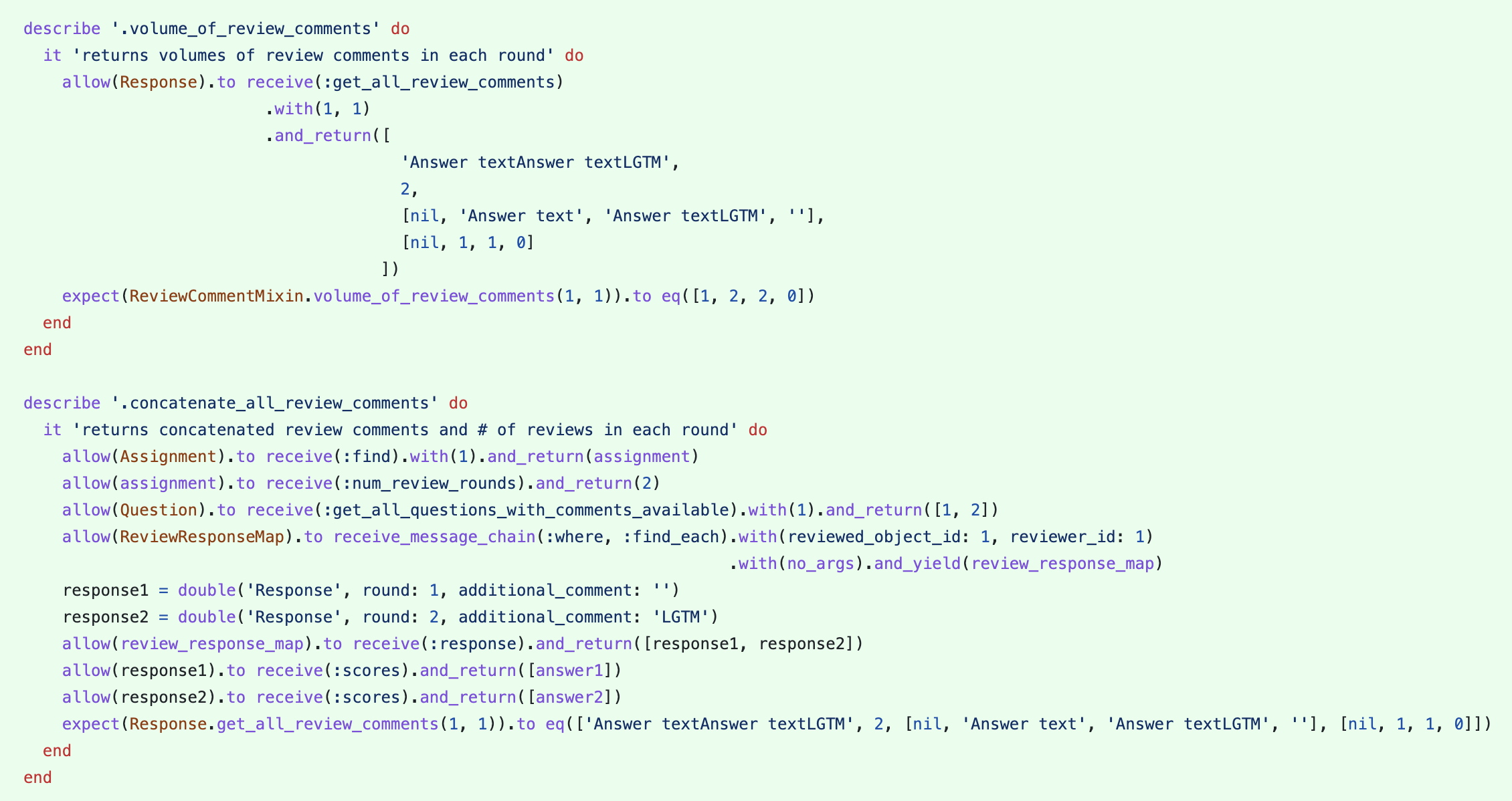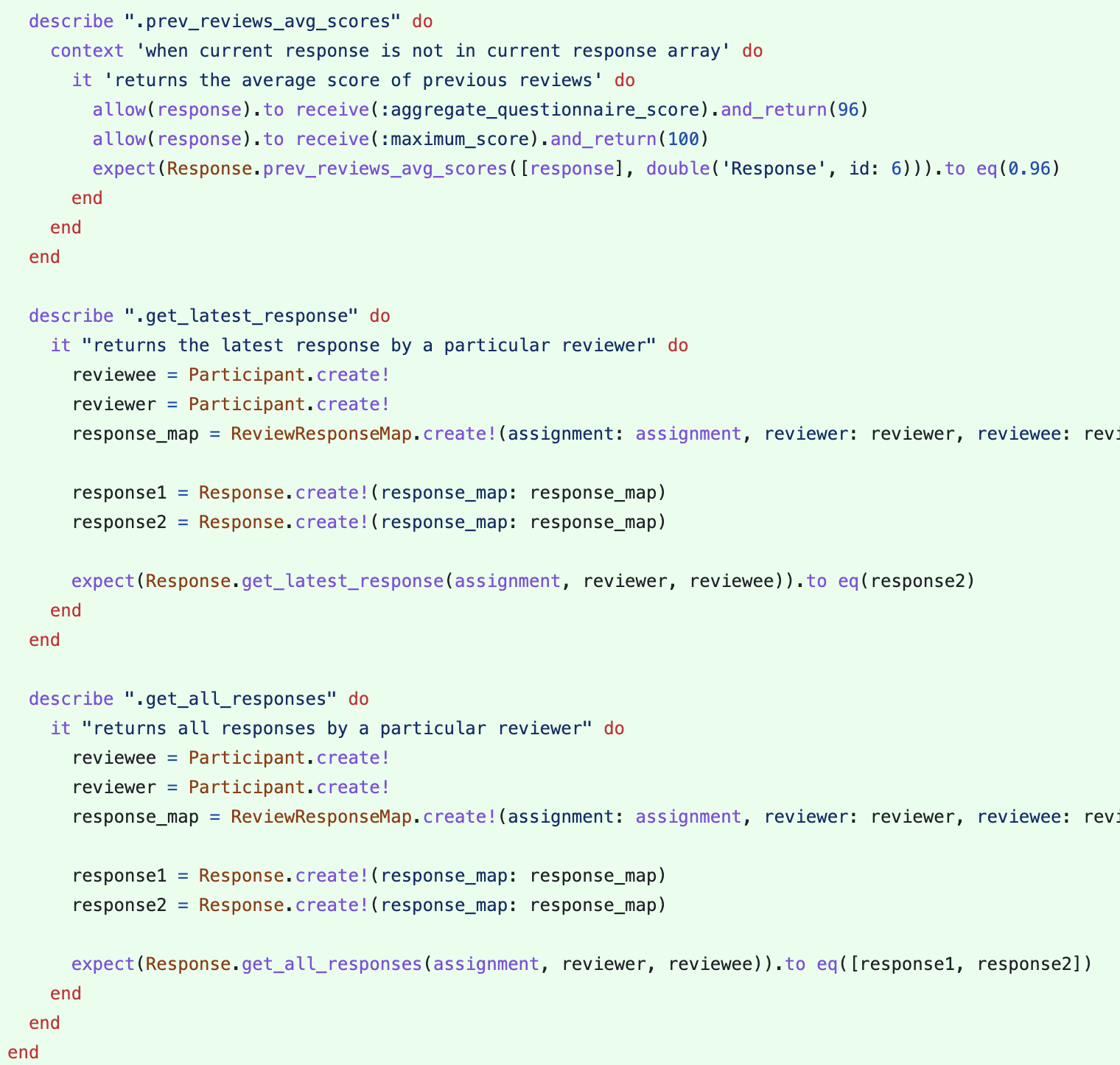CSC/ECE 517 Spring 2023 - E2336. Reimplement response.rb
Project Overview
There are several issues we plan to address as part of this project.
- Refactor the get_all_review_comments method as an instance method in response.rb file
- Refactor the self.get_all_responses method as an instance method in response_map.rb file.
- Add more descriptive comments for the tests.
Issue 1: Refactor the self.get_all_review_comments method
Currently, the get_all_review_comments method is a class method that returns a data structure containing all the review comments for all responses. This violates the principles of good design as it creates a large data structure that the calling method needs to break apart, leading to poor performance and increased complexity.
To address this issue and come up with a much more elegant design, we plan to refactor as a new implementation that should convert the get_all_review_comments method into an instance method that takes a review object as an argument and returns the comments for that review only.
Issue 3: Make the method in ReviewCommentMixin to be an instance method
Problems:
- The ReviewCommentMixin has one single method volume_of_review_comments and it is currently present as a class method. There is no need for it to be a class method and it should instead be an instance method.
- Volume of review comments is a metric, which belongs in metrics.rb, not in a mixin for responses.
Solution:
The change is quite straight forward. We should move this method to be an instance method in metrics.rb file. A side note is that, this method calls the get_all_review_comments method from response.rb. This method will be changed as part of this project (See above points). Any change to that function's method call must be reflected here too.
Issue 4: Simplify + Refactor methods in ScorableMixin
This mixin has methods that are related to scoring. https://expertiza.csc.ncsu.edu/index.php/Scoring_%26_Grading_Methods_(Fall_%2721) is a good resource to understand how scoring and grading works.
Problems:
- Not DRY : The following piece of code is used in 2 functions - calculate_total_score and maximum_score
```
scores.each do |s|
question = Question.find(s.question_id)
< Perform a calculation >
end
```
Basically, we iterate through the score and calculate something. The common calculation between both these functions is total_weight calculation.
What problem does this cause? If the logic to calculate the total_weight changes in the future, we will have to make changes to both these places. A developer who is relatively new to the project might miss out one changing it in a location. It is always good to have a single point of change by 'DRY'ing our code.
- Not optimized: Another change related to the above snippet has to do with how the queries are made and the number of queries.
``` question = Question.find(s.question_id) ```
What problem does this cause? This is done inside a loop, meaning we perform a select query to each time -> N queries for N objects. Our solution aims to optimize this.
- Checking the class type of an object to perform some business logic
This issue is present in the questionnaire_by_answer method. The following snippet shows it:
```
assignment = if map.is_a? ReviewResponseMap
map.assignment
else
Participant.find(map.reviewer_id).assignment
end
```
Solutions:
- The common function would involve calculating the sum of weight.
```
def calculate_total_weight()
scores.each do |s|
question = Question.find(s.question_id)
total_weight += question.weight unless s.answer.nil? || !question.is_a?(ScoredQuestion)
end
```
And this can be called inside the calculate_total_score and maximum_score.
- Instead of calling Question.find inside the loop, we can get the set of question_ids and use a where function.
```
question_ids = scores.map(&:question_id)
questions = Question.where(question_id: question_ids)
< Make the calculation here >
```
This way, we only make one database call instead of N calls.
- To solve checking the object type, we can write a method in ResponseMap and ReviewResponseMap. This way, we can just call that method in the object and depending on what object it is, we would get the corresponding answer.
* In ReviewResponseMap, the method should return it's assignment * In ResponseMap, the method should return Participant.find(map.reviewer_id).assignment
Issue 5: Refactor the self.get_all_responses method
The self.get_all_responses method which is currently in the response.rb file would be much cleaner as an instance method in response_map.rb. We plan to refactor the self.get_all_responses method in response.rb to an instance method in response_map.rb.
Issue 6: Add more descriptive comments for the tests
The existing tests need more descriptive comments. We plan to add more detailed comments for all the test cases.





